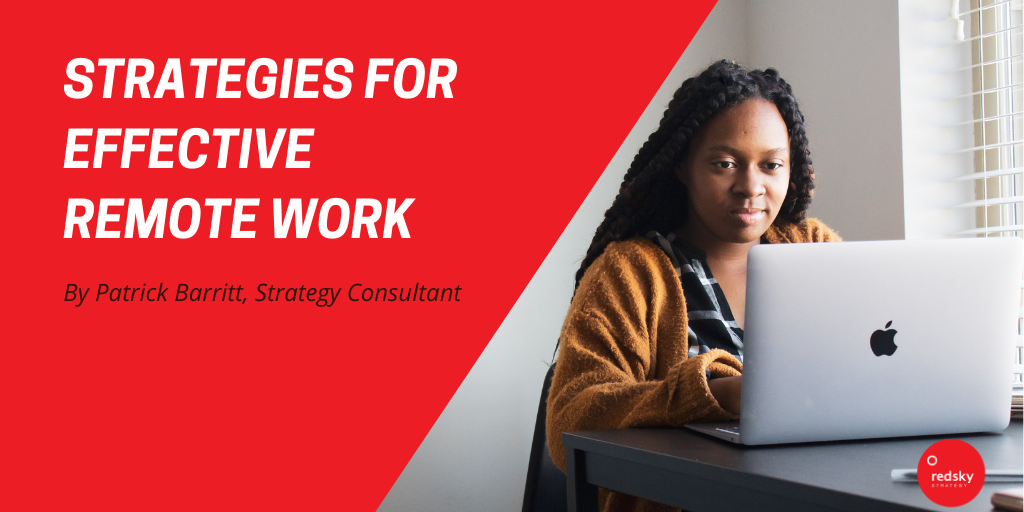News
4 Strategies for Effective Remote Work

On his comedy special “Inside” on Netflix, Bo Burnham says, “If you’d have told me a year ago that I’d be locked inside of my home, I would have told you a year ago, ‘interesting, now leave me alone.’” Many of us have been working from home for nearly two years now, with plenty of changes within that time (in my case, they included a move of house and state).
Before the pandemic, working from home was considered a perk or benefit, something uncommon. That is no longer the case, to say the least, for those who previously worked in offices. Just because something becomes widely common does not mean we have well-developed ways of dealing with it. Two things those of us who work from home have all shared are loneliness and a loss of boundaries. This article offers some tips to cope, because it looks like the new normal is going to be with us for a bit longer than we might have hoped.
Working From Home Can Be Lonely, and That’s Okay.
We don’t yet know the full impact that COVID-19 lockdowns and self-isolation will have on the public psyche, but it’s not unreasonable to say that loneliness will emerge in different ways throughout the population — and it is our responsibility as humans and colleagues to support one another in whatever ways we can. Feeling isolation or loneliness, especially under the current circumstances, is perfectly natural, and you need to know that many, many others are feeling it with you. People with spouses or partners, and/or family members in-house, will have some support, but others may not. For those who do feel lonely working from home, here are some tips:
- Utilize video conferencing to discuss the small things, but not so often that it induces exhaustion.
- Face-to-face contact is key to alleviating feelings of loneliness, even if it happens via a screen. One study in India suggested that 90% of participants felt that video conferencing helped them combat feelings of loneliness.
- Schedule casual talks with trusted colleagues to discuss non-work-related things, or even work-related things that you don’t get to talk about in a regular call. You could talk about how you feel about your workload, etc. This allows for more regular “human-like” interactions that aren’t strictly based on work.
Removing Commuting Time is Extra Time for Yourself.
This one requires a bit of explanation. Let’s say it took you one hour to get to work in the morning and one hour to get back in the evening. That’s two hours of commuting each day. But when you work from home, those two hours have been “given back” to you. Here are some things you can do with that time:
- Maintain a wake-sleep routine (if you’ve had one).
- If you woke up at 7am pre-pandemic, then continue to do so — routines are important for mental health.
- Even more vitally, try your best to get 8 hours of sleep.
- This is well documented — the right amount of sleep has been shown to provide a wide array of benefits for both physical and mental health.
- Use the time you’ve “gained” to do something for yourself — maybe something you’ve wanted to do but put off because you haven’t had the time.
- Consider taking time for reading, writing, exercise, and self-reflection.
- Use part of the hour at the end of your day to plan the following workday. (This may sound like more work, but it really isn’t.)
- Suggestion: Spend 10-15 minutes at 6pm to make a checklist of the tasks you know you need to accomplish tomorrow. (But practice mental flexibility wherever you can — new things that come up tomorrow cannot be predicted today, so adjust accordingly.)
These suggestions might be high-level, but setting aside time to think about it now means not having to think about it later, which leads to the next point…
“Signing Off” is the Same as Leaving the Office.
Taking steps to allow yourself to go offline is vital. And it can actually help you be more productive. It’s healthy to make a clear distinction between home life and work life. If you’re working from home permanently, this line can become blurred, so setting your own boundaries is important. The transition to working from home means that employees are routinely working more weekends, and more hours.
Schedule Your Time — and Hold Yourself to It.
One way to manage loneliness is to schedule personal events — including your lunch breaks. You can schedule things like planning time and movement breaks. Whatever gives you a sense of routine. Scheduling aids memory when we’re feeling a blank sameness that’s easy to get lost in. But scheduling also helps to keep colleagues informed about what’s going on during the day.
These tips may not work for everyone, but they may work for certain work-from-home circumstances. Hopefully this article has given you a few ideas that can help you optimize your working style to better fit the dynamics of work-from-home as the pandemic stretches on.
Interested in working with RedSky Strategy to shift your perspective and marketing strategies? Our team looks forward to meeting with you, and uncovering how we can use HumanSight to illuminate the best pathway to growth for your company.
